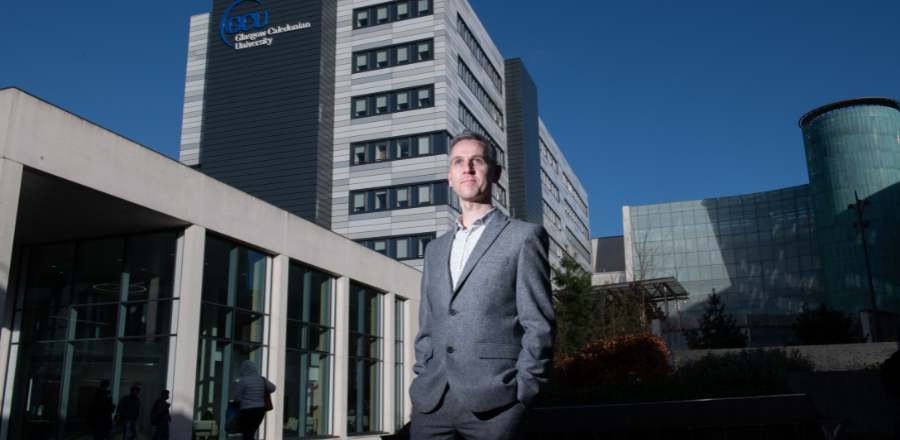Mental illness stigma study findings highlighted in Scottish Parliament

Glasgow Caledonian University (GCU) Professor of Applied Psychology Simon Hunter was “very pleased” that the findings of a Scottish Mental Illness Stigma Study were highlighted in the Scottish Parliament.
Professor Hunter, who helped lead and design the study, and co-authored the final report, said it was great that MSP Clare Adamson called for action after the study showed people with complex mental illnesses experience discrimination in many areas of their lives.
The Scottish Mental Illness Stigma Study was carried out by See Me, Scotland's programme to end mental health stigma and discrimination, in collaboration with the Mental Health Foundation, VOX Scotland and GCU, and the results were released on 27 September.
Professor Hunter said: “We were very pleased this week to see that this important work has been raised in the Scottish Parliament by MSP Clare Adamson.
“The experience of stigma, and its effects on almost every area of life for those living with a serious and enduring mental illness, mean that action to tackle it is needed in many different ways.
“Policy change at a government level is an important part of this, and we hope that meaningful engagement with the results of the study are maintained.”
He hopes the first of its kind study in the UK, which “paints a disturbing picture of the different ways that stigma and discrimination can be experienced by people who live with severe and enduring mental illness in Scotland”, will shape future policy to reduce stigma.
Professor Hunter is also the Child and Adolescent Health Research Group Lead in the School of Health and Life Sciences’ Research Centre for Health (ReaCH), which makes a direct and significant contribution to Sustainable Development Goal 3 – good health and wellbeing – issued by the United Nations in 2015 as a blueprint for peace and prosperity across the planet.
Speaking in the Scottish Parliament this week, MSP for Motherwell and Wishaw Clare Adamson said: “The Scottish Mental Illness stigma study, commissioned by See Me Scotland found that stigma around mental illness remains pervasive in daily life. Stigma has been identified as a significant factor in suicide. With that in mind, how will the Scottish Government place greater emphasis on the impact of stigma in relation to mental health as part of its new suicide prevention strategy?”
Minister for Mental Wellbeing and Social Care Kevin Stewart responded by saying that the Scottish Government is already providing £1 million of annual funding until 2026 for See Me Scotland’s national campaign to stop mental health stigma and discrimination.
He added: “We have given See Me Scotland the comfort of that year-on-year funding so that it can continue to build on the good work that it has already done.
“See Me Scotland carries out a huge amount of work, including work with employers on mentally healthy workplaces as well as FeelsFM, which is an app to help young people express themselves, and face-to-face work in communities right across Scotland.”
The study explored the experiences of people who live with long-term, enduring mental illnesses, and who have faced stigma over the last year. It found that nine in 10 had suffered stigma in relationships, nearly eight in 10 in healthcare services, and 71% in employment.
Years of stigma and discrimination towards people with mental illness has left people feeling ashamed and assuming that the public, and people in positions of power think the worst of them, including that they are to blame for their conditions, while more than half of people with mental illness said they respect themselves less because they think they will never get better.
Participants were asked to identify the three life areas where stigma had the greatest impact. Of those who identified mental healthcare services, more than half (58%) have avoided calling an ambulance or attending A&E when in need of emergency help for their mental health, due to previous negative experiences.
For those who chose relationships, four in 10 (45%) participants agreed that they had stopped themselves from starting a family or having children due to mental health stigma; in employment, 85% stopped themselves from applying for jobs; and in mental healthcare services, 80% had also stopped themselves from getting help from mental health services.
See Me is calling for major change across Scottish society to ensure that people with mental health illness feel safe and included in all aspects of life. Read the full report -https://www.seemescotland.org/stigmastudy
